Listening skills Worksheets for Ages 4-5
10 filtered results
-
From - To
Enhance your child's auditory abilities with our engaging Listening Skills Worksheets, designed specifically for ages 4-5. These worksheets foster essential listening skills through fun and interactive activities, helping young learners follow instructions, recognize sounds, and improve focus. Our easy-to-use resources incorporate colorful illustrations and age-appropriate exercises, making learning enjoyable and effective. By encouraging active listening, children develop better communication skills and increased confidence. Perfect for parents and educators, these worksheets support early childhood development at home or in the classroom. Explore our collection today and give your child the gift of listening!


Baa Baa Black Sheep Printable
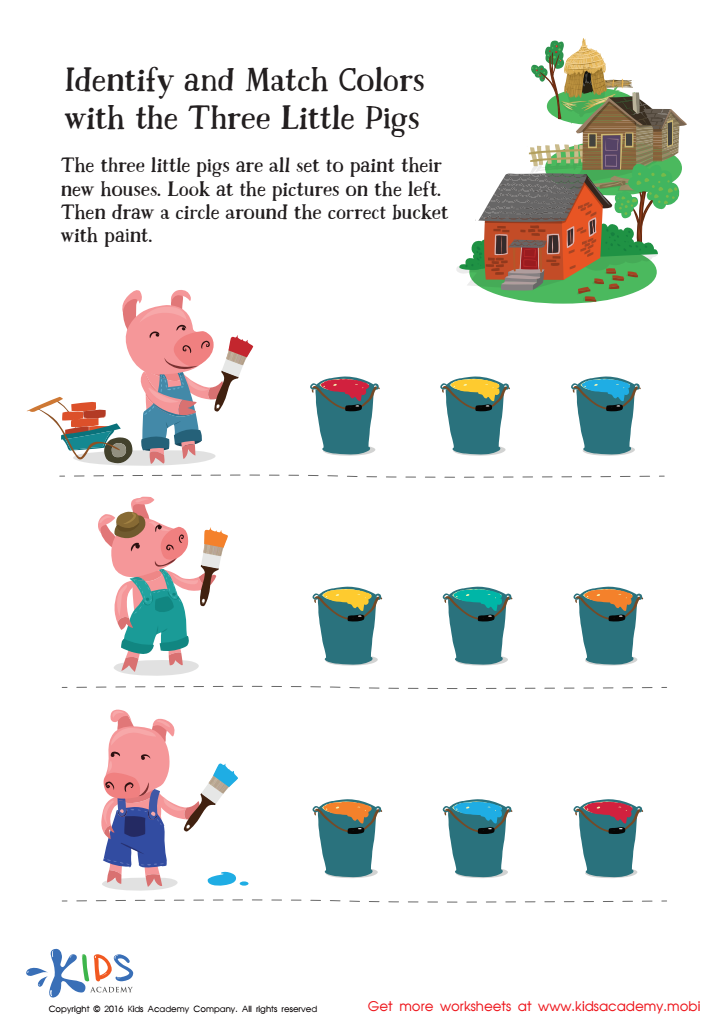

Fairy Tale Worksheet: Identify and Match Colors with Three Little Pigs
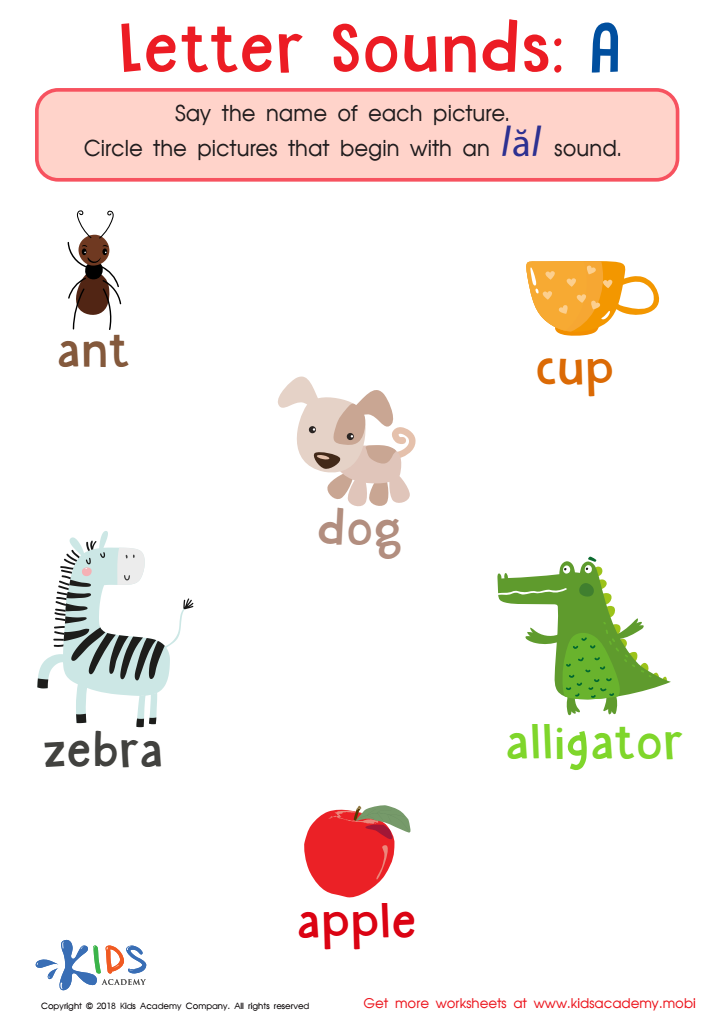

Letter A Sounds Worksheet
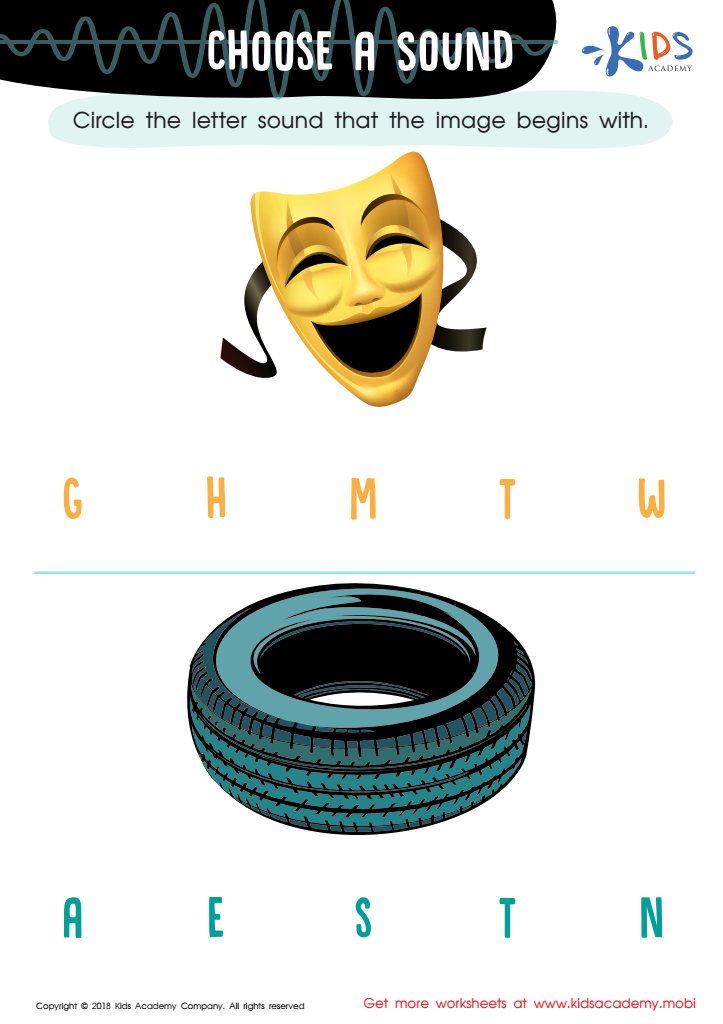

Choose a Sound Worksheet
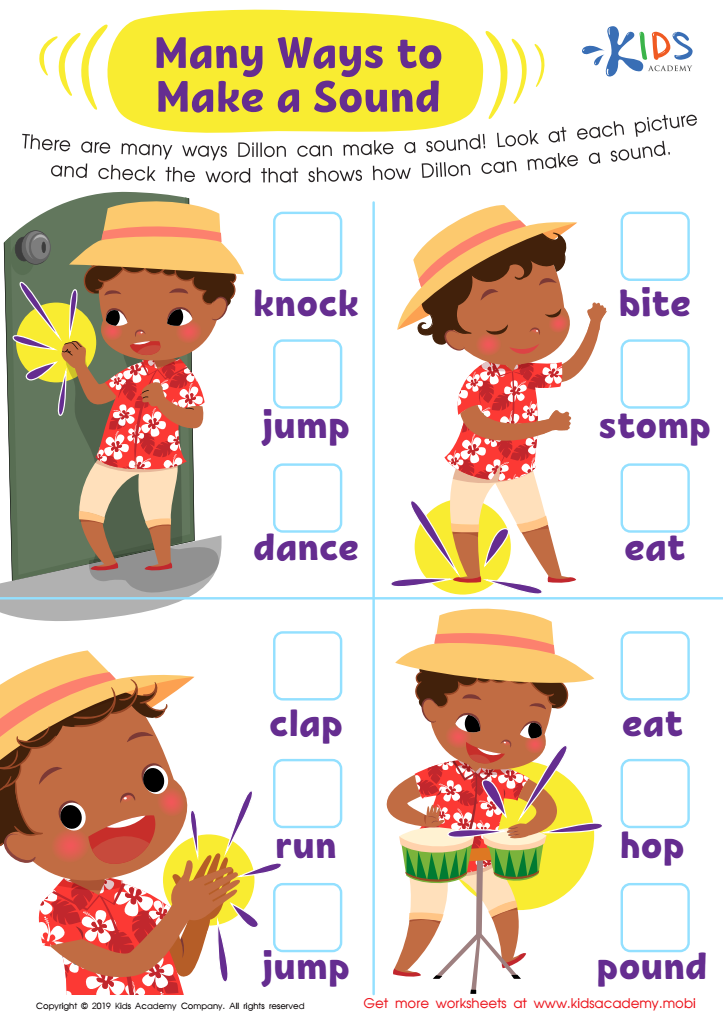

Many Ways to Make a Sound Worksheet
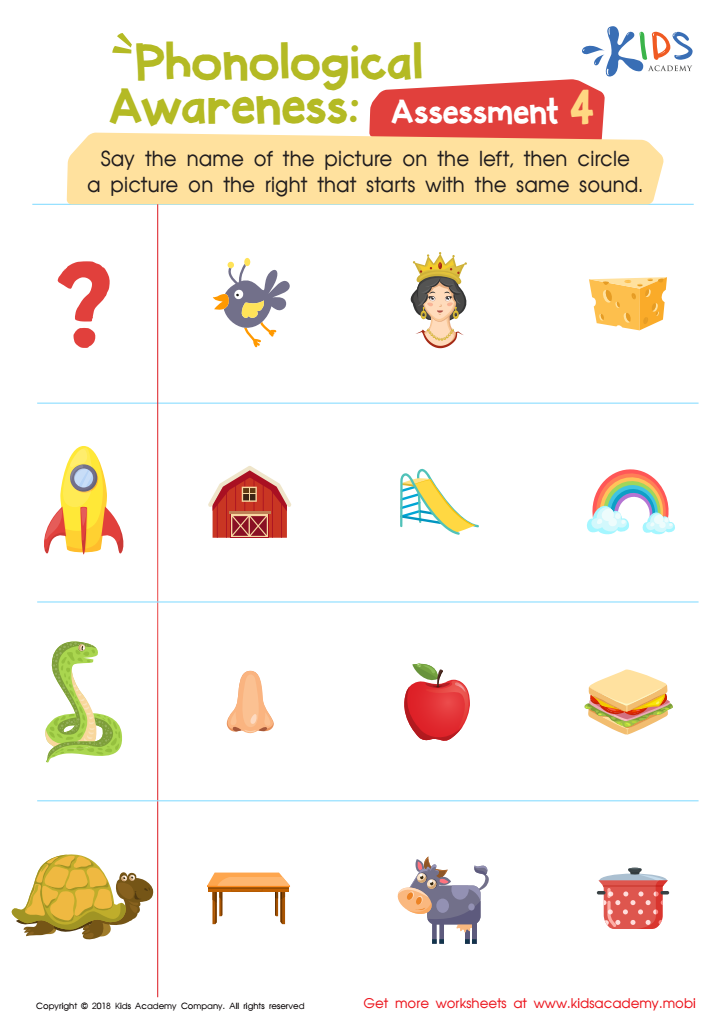

Phonological Awareness: Assessment 4 Worksheet
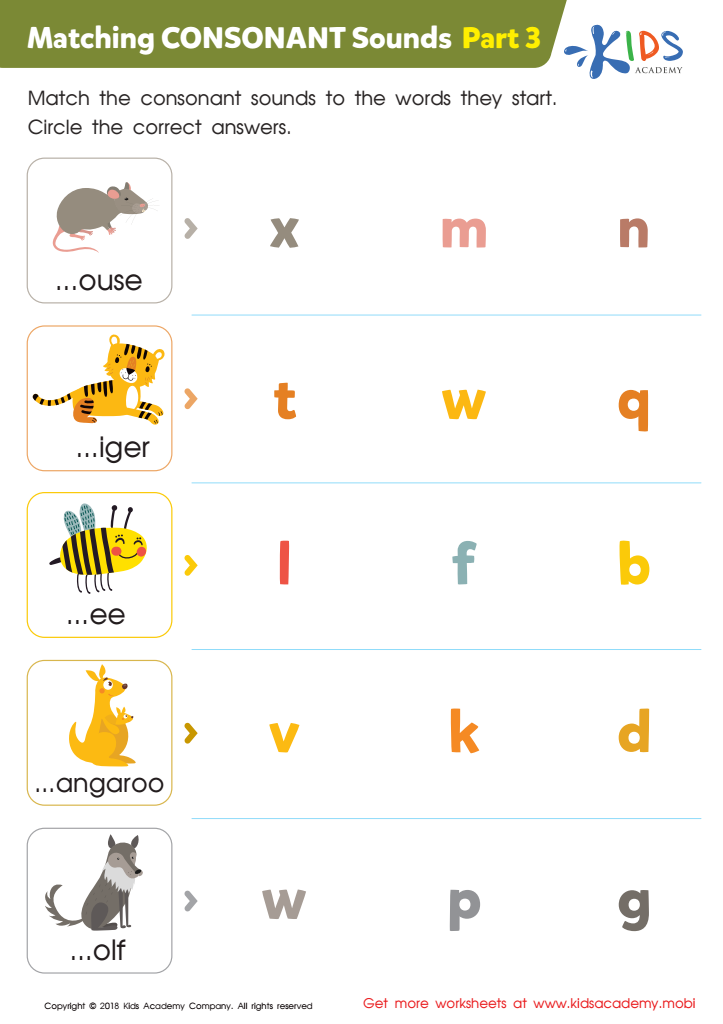

Matching Consonant Sounds: Part 3 Worksheet
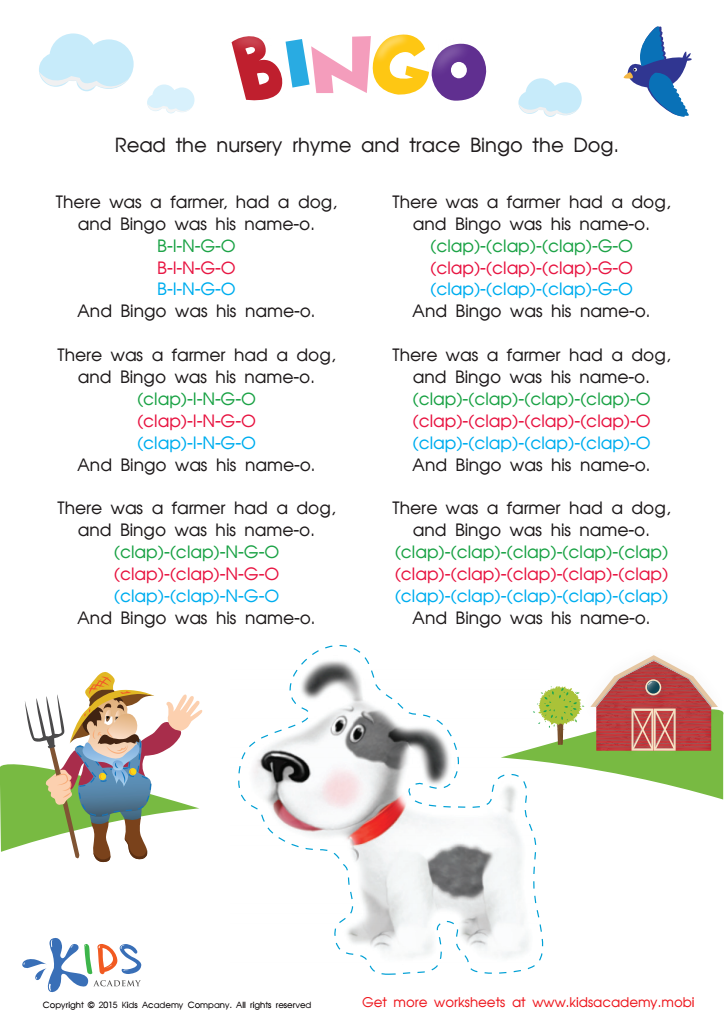

Nursery Rhymes: The Bingo Song Worksheet
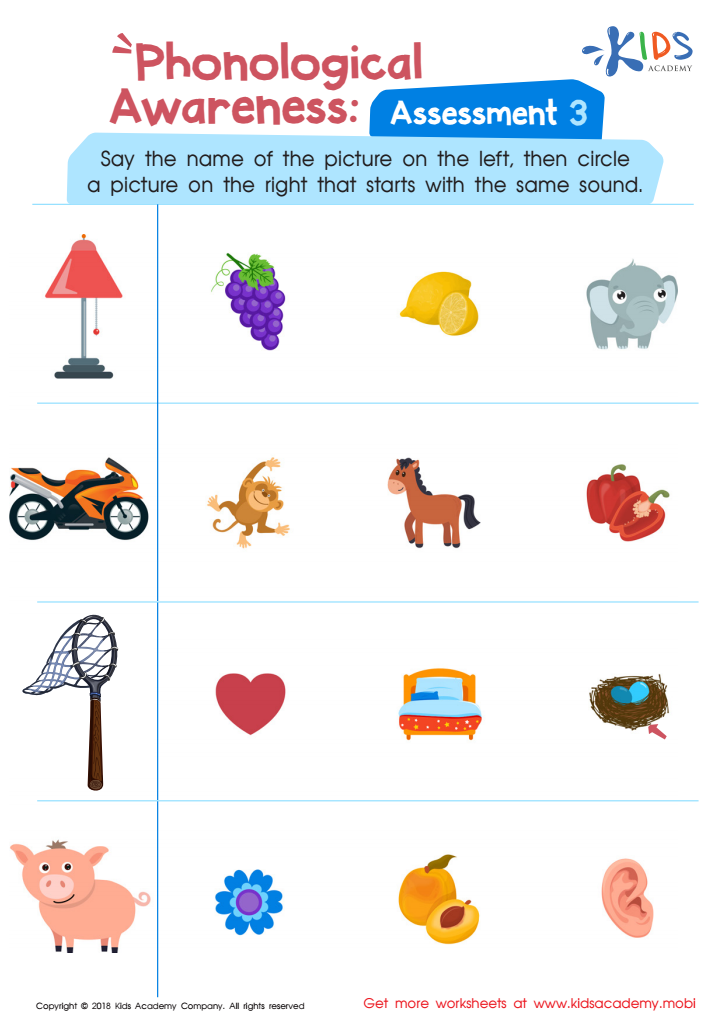

Phonological Awareness: Assessment 3 Worksheet
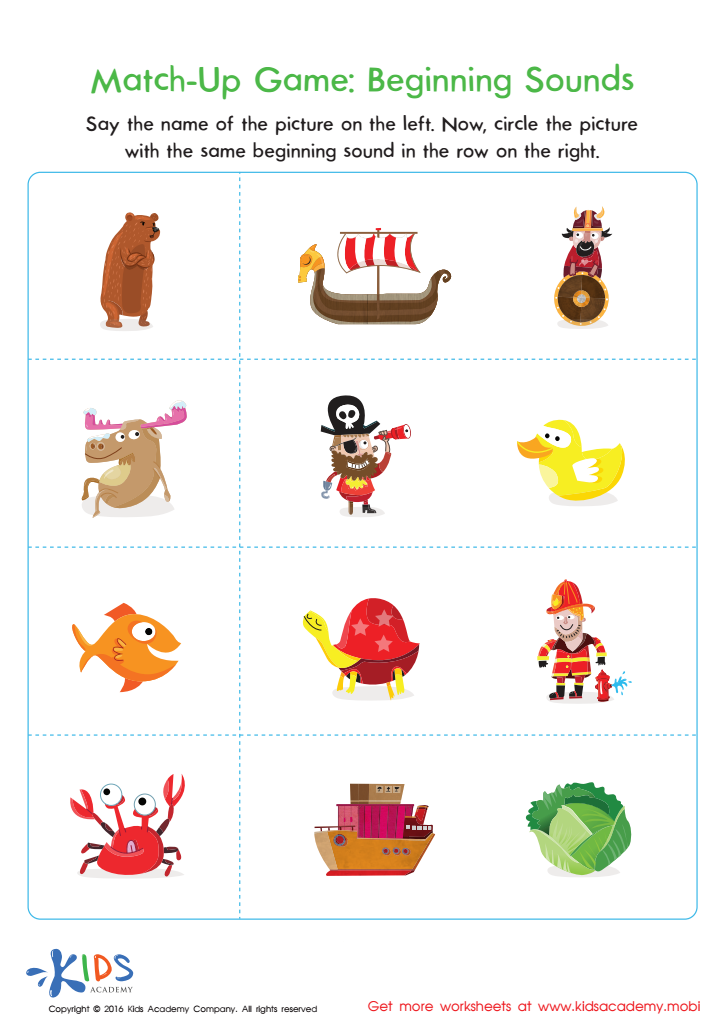

Match–Up Game: Beginning Sounds Worksheet
Listening skills are crucial for children aged 4-5, as they serve as the foundation for effective communication, learning, and social interactions. During these formative years, children are absorbing vast amounts of information, and strong listening skills enhance their ability to understand instructions, follow stories, and engage in conversations. When parents and teachers prioritize listening, they create an environment that fosters attention span, comprehension, and critical thinking.
Additionally, listening is essential for language development. As children listen to adults and peers, they pick up vocabulary, tone, and expression, building their own communication skills. These experiences also help them develop empathy and emotional intelligence, as listening allows them to understand others' feelings and perspectives.
In school settings, teachers can facilitate cooperative learning, enabling children to listen to each other and collaborate effectively. Parents can support this at home by encouraging active listening during discussions, stories, or play. When children feel heard, they’re more likely to express themselves confidently, contributing to their self-esteem and social skills. Overall, fostering strong listening skills lays the groundwork for academic success and healthy relationships, making it an essential focus for parents and educators alike.

 Assign to My Students
Assign to My Students





.jpg)




.jpg)










